Benefits of Neurodiversity in the Workplace
By Kimberly Kafafian
During the month of April, we’re going to focus on neurodiversity in the workplace. Oftentimes it’s an overlooked and marginalized aspect of our workplace. It’s a subject I am passionate about; I’m also a resident expert. I am neurodiverse. My sons are neurodiverse. Our employees and clients are neurodiverse. I spent a large portion of my life feeling like a square peg getting shoved into a round hole. Fortunately over the last few years, more and more companies have started to prioritize diversity, equity, inclusion and belonging (DEIB) initiatives. Business leaders have come to recognize that organizations greatly benefit from a workforce composed of people of varying backgrounds. Not only does DEIB enhance engagement and productivity, it also fosters creativity, driving innovation and growth.
When companies take steps to improve DEIB, however, they tend to focus on gender, race, ethnicity and social background, typically leaving one group of workers overlooked: the neurodiverse. Studies estimate a staggering 50-75% of the 5.6 million autistic adults in the U.S. are unemployed or underemployed. This is extremely unfortunate as members of this group can bring so much to the table.
What Is Neurodiversity?
As Nicole Baumer, MD, MEd has succinctly states, “Neurodiversity describes the idea that people experience and interact with the world around them in many different ways; there is no one “right” way of thinking, learning, and behaving, and differences are not viewed as deficits.”
The term is typically used in the context of the Autism Spectrum Disorder (ASD), as well as other conditions such as ADHD, dyslexia, social anxiety disorders, and learning disabilities. The stigma usually associated with ASD or neurodivergent thinking is that these groups do not communicate or function the same way as neurotypical people. But that’s exactly the beauty and benefit of neurodiversity!
What people don’t understand is that there is such a wide range of strengths and challenges among people with ASD. So many in this group have average to above average IQs, communicate effectively, bring unique ideas and perspectives to the projects they work on, and offer skills and talents that add value overall.
Ever since I began my career in HR, I have been extremely passionate about diversity and how employers can achieve it. I’ve pushed back against stigmas to promote diverse teams whose members working together can achieve great things. And when it comes to the neurodivergent, I know that this is an untapped pool of talent definitely worth recruiting. I’ve seen first hand how neurodiversity has made organizations stronger.
How Employers Benefit from a Neurodiverse Workforce
Hiring neurodiverse workers is a great way to give organizations the competitive edge they need in today’s environment. Here are just a few benefits companies can reap from prioritizing diversity in cognition.
Bolstered strengths and skill sets.
The neurodiverse can bring a host of sought after skill sets to an organization, including:
- High levels of concentration
- Superior mathematical and technical skills
- The ability to hold detailed factual knowledge
- And perhaps the most in demand skills right now: leadership, creativity and initiative (displayed by people with dyslexia according to a report from EY)
Overcoming “groupthink”.
Contrary to the popular saying, great minds “don’t” think alike – at least that’s how I see it. Neurodivergent individuals process things differently, so they see things differently. And that’s important if you want teams to effectively problem solve and come up with new ideas.
Driving innovation.
If you want to boost creativity then you need team members that don’t think in a traditional way. Neurodiversity fosters unique ideas and perspectives that drive the innovation companies need to thrive and grow.
Tackling talent shortages.
Businesses of all sizes are struggling to fill job openings right now. With so many unemployed and underemployed neurodivergent workers, HR departments should be tapping into this talent pool. Plus, studies demonstrate high retention rates among neurodivergent workers – something that could help address the Great Resignation.
It’s time to stop the stigma and embrace neurodiversity – it’s good for society and good for a company’s bottom line.










Leave a Reply
Want to join the discussion?Feel free to contribute!